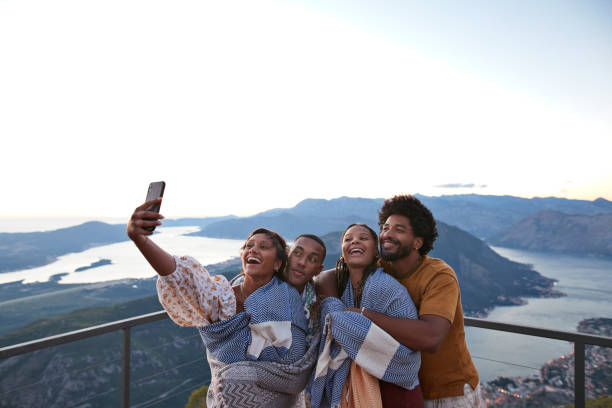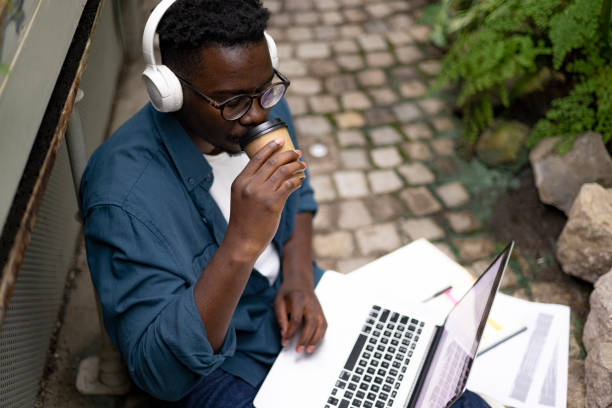Things You Should Know If You’re Black and Considering the Digital Nomad Lifestyle
4 min readLet’s be honest; it’s hard for Black people to live in the United States. With police brutality, racism, and microaggressions at work, Black people are stepping out onto the battlefield every time they leave their homes.
Since simply existing in the U.S. is a challenging task, more and more Black people are finding peace, safety, and community in other countries by becoming digital nomads.
However, the experience of being a Black digital nomad has unique differences. Therefore, if you want to take on this career and lifestyle change, here are some things you need to know.
What does being a digital nomad involve?
A digital nomad is often defined as someone who works remotely and can use their laptop to work from anywhere worldwide.
There are two main aspects of being a digital nomad. One is location freedom, making your own schedule, living almost anywhere you want, working from home or a cafe, and generally not being tied down by the restraints of a typical 9-to-5 job.
The other side of being a digital nomad involves:
- Navigating the visa requirements of different countries.
- Adjusting to cultural differences.
- Dealing with power outages.
- Creating a work-life balance.
In addition, if you’re Black or a POC, certain experiences are unique to you as someone living abroad.
Black digital nomads are often perceived differently
This is twofold. First, you will be perceived differently by your family. For older generations of Black families, especially immigrant parents, the idea of traveling the world and working is a new and strange concept.
For many elders, the United States is the strongest country in the world. Leaving the States to travel the world can seem absurd.
Additionally, how you’re perceived in another country will be different. According to Asha Farrah, Mexico’s Relocation Expert, “Some unique challenges Black digital nomads have to face include perception. Most countries have stereotypical perceptions of Black people, and that can impact how locals interact with you. Also, Black digital nomads don’t have the ability to blend in, living in most countries. It’s important to understand that as a Black digital nomad, you will attract attention, whether good or bad.”

Finding community is fundamental
One of the great things about being a digital nomad is meeting people and making friends from different cultural backgrounds and nationalities. Beyond just making friends, Black people, especially Black digital nomads, need community. Without it, living in a foreign country can feel isolating and frustrating.
Having a group of people you can safely be yourself around and rely on is a major part of Black culture in the United States and around the world. Therefore, finding and building a community can be essential for mental and emotional health.
Places like Mexico, Colombia, and even Bali are growing with Black immigrants, but not every country has a larger population of Black people. When choosing a country to call your temporary home, it’s vital to consider your chances of building a community with people who share similar cultural values.
Of course, you can build a community with other cultures, people, and natives. However, creating a community with people with similar cultural backgrounds and experiences ultimately helps you feel safe and secure in a new country.
There can be a sense of guilt along with the feeling of liberation
As someone who has been living abroad for seven years, I can confidently say I feel more comfortable and more like myself since moving abroad.
Even though almost every country has some misconceptions of Black people, there are many places abroad that don’t harbor the same hatred that is seen in the United States.
Speaking from my experience, I’ve encountered ignorance and a general dislike for the color of my skin, but I’ve never felt that someone’s dislike for me would endanger my life. Don’t get me wrong, I’ve definitely had some fear for my life moments, but not because of racism.
So yes, living abroad as a Black American is liberating. However, there is also a level of guilt and worry that I still carry. While I honor the ancestors who fought for my freedom in the United States, I know that just like Maya Angelou and Josephine Baker, I was meant to live beyond the red, white, and blue borders.

Despite knowing this, I still feel guilt and fear because of my family and my friends who are in the States. I feel sad when I can’t partake in family events because I’m several plane rides away instead of several freeways away. When I see horrific events happening to Black people in the United States, I am also hit by a deep wave of sadness and fear that vibrates to my core as I wonder if my friend or brother will meet the same devastating fate.
Even though I’m not directly affected by the racial violence in the United States, it still impacts me thousands of miles away.
On a positive note, I’ve experienced many positive transformations since moving abroad. The fear I experienced in the United States has decreased. I no longer feel restrained or pressured to fit into a stereotypical box. I have experienced a greater sense of freedom and self-worth that I don’t think I could have reached if I had stayed in the United States.
However, I know that no matter where I end up, there’s a 50/50 chance that the color of my skin will influence how I am treated, and that’s the unfortunate risk of being a Black digital nomad.




